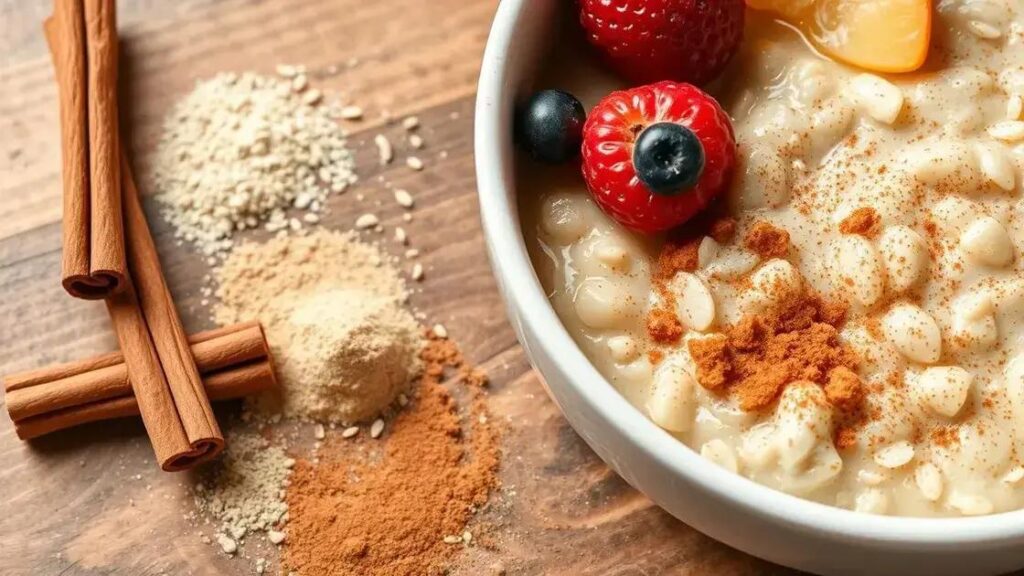Adding cinnamon to your diet can help regulate blood sugar levels, improve insulin sensitivity, and provide antioxidant benefits. It can be easily incorporated into meals like oatmeal, smoothies, and baked goods. However, it’s essential to consume cinnamon in moderation due to potential side effects, particularly from Cassia cinnamon, which contains high levels of coumarin. Understanding the different types of cinnamon and their effects is key to safely enjoying its health benefits.
Adding cinnamon to your diet can significantly aid in blood sugar control, making it a potent ally for those looking to manage their glucose levels. Rich in antioxidants and known for its anti-inflammatory properties, cinnamon not only enhances the flavor of your favorite dishes but also provides multiple health benefits. This article explores how this aromatic spice functions in regulating blood sugar, ways to incorporate it into your daily meals, and any potential risks you should be aware of.
Understanding Cinnamon and Its Properties

Cinnamon is a popular spice that not only adds flavor to dishes but also offers numerous health benefits. It comes from the inner bark of trees from the genus Cinnamomum. The process of harvesting involves cutting the bark and allowing it to dry, which causes it to curl into rolls known as cinnamon sticks.
Types of Cinnamon
There are two main types of cinnamon: Ceylon and Cassia. Ceylon, often referred to as true cinnamon, is sweeter and more aromatic. On the other hand, Cassia cinnamon is the more common variety found in grocery stores, known for its bold flavor.
Nutritional Profile
Cinnamon is rich in antioxidants, offering health benefits beyond just its alluring taste. It contains vitamins and minerals, including Vitamin K, calcium, iron, and manganese. These compounds help fight oxidative stress in the body and promote overall well-being.
Health Properties
Cinnamon is known for its anti-inflammatory and antimicrobial properties. It can help reduce inflammation in the body, which may play a role in the management of chronic diseases. Moreover, its antimicrobial effect can inhibit the growth of harmful bacteria and fungi.
Moreover, cinnamon has been studied for its potential to lower blood sugar levels and improve insulin sensitivity. These properties make it a beneficial addition to the diet, especially for those managing diabetes or at risk of developing it.
How Cinnamon Helps Blood Sugar Control

Cinnamon plays a vital role in blood sugar control, making it a valuable addition to the diet, especially for those managing diabetes. Research shows that the compounds found in cinnamon can help lower blood glucose levels, making it easier to maintain a healthy balance.
Mechanism of Action
The active ingredient in cinnamon is called cinnamaldehyde. This compound helps to increase insulin sensitivity, allowing the body to use insulin more effectively. By improving insulin sensitivity, cinnamon can help regulate blood sugar levels after meals.
Impact on Blood Sugar Levels
In several studies, participants who consumed cinnamon daily experienced lower fasting blood sugar levels. This reduction can lead to improved overall glycemic control, which is crucial for people with type 2 diabetes.
Additional Benefits
In addition to lowering blood sugar, cinnamon can also reduce the risk of diabetes-related complications. Its antioxidant properties help fight oxidative stress, which is often elevated in individuals with uncontrolled blood sugar levels. By controlling both blood sugar and oxidative stress, cinnamon aids in promoting better health.
Incorporating cinnamon into your meals may not only enhance flavor but can also provide these significant health benefits, making it a simple yet effective dietary change.
Delicious Ways to Add Cinnamon to Your Diet

Incorporating cinnamon into your meals is easy and rewarding. Here are some delicious ways to add this spice to your diet for better blood sugar control:
1. Cinnamon Oatmeal
Add a teaspoon of cinnamon to your morning oatmeal. Not only will it enhance the flavor, but it will also provide added health benefits while keeping your blood sugar in check.
2. Healthy Smoothies
Mix cinnamon into your favorite fruit smoothies. Just a pinch can give a delightful flavor while also balancing the sugar content of fruits.
3. Spiced Coffee or Tea
Sprinkle some cinnamon on top of your coffee or mix it into your tea. This can provide a warm flavor and help regulate blood sugar levels, making your morning beverage even healthier.
4. Cinnamon in Baking
When baking, use cinnamon in recipes like muffins, bread, or cookies. It adds a comforting taste while boosting health benefits. Substitute some sugar with cinnamon to keep the sweetness without the sugar spike.
5. Flavorful Yogurt
Stir cinnamon into your yogurt, along with some nuts or seeds. This will create a tasty snack that supports blood sugar control and keeps you feeling full longer.
Cinnamon can easily be a part of your meals, helping to enhance flavor while providing numerous health advantages.
Potential Side Effects of Cinnamon Consumption

While cinnamon offers several health benefits, it is important to be aware of the potential side effects associated with its consumption. Here are some risks to consider:
1. Allergic Reactions
Some people may have an allergy to cinnamon. Symptoms can include skin irritation, itching, or even difficulty breathing. If you experience any allergic reactions, it is best to discontinue use and consult a doctor.
2. Liver Damage
Cassia cinnamon, the more common type, contains high levels of a compound called coumarin. High consumption of coumarin may lead to liver toxicity. It is advisable to consume cinnamon in moderation to avoid potential harm.
3. Blood Sugar Levels
While cinnamon can help regulate blood sugar, taking it in large amounts can cause blood sugar to drop too low, especially in those on diabetes medication. Monitor your levels and consult a healthcare provider if needed.
4. Interactions with Medications
Cinnamon may interact with certain medications, particularly those that affect blood sugar. If you are taking medications for diabetes, it’s essential to talk to your doctor before adding cinnamon as a regular part of your diet.
By being mindful of these potential side effects, you can safely enjoy the benefits of cinnamon in your diet while minimizing risks.
In Summary: Embracing Cinnamon for Health Benefits
Adding cinnamon to your diet can be a simple and flavorful way to enhance blood sugar control. With its rich history and numerous health benefits, this spice can contribute positively to your overall well-being.
From oatmeal and smoothies to baked goods and beverages, there are many delicious ways to incorporate cinnamon into your daily meals. However, it’s essential to consume it in moderation, as excessive intake can lead to potential side effects.
Understanding both the benefits and risks associated with cinnamon consumption will help you make informed choices for your health. By doing so, you can enjoy the advantages of this remarkable spice while minimizing any potential concerns.
FAQ – Frequently Asked Questions about Adding Cinnamon to Your Diet
What are the health benefits of adding cinnamon to my diet?
Cinnamon can help regulate blood sugar levels, improve insulin sensitivity, and provide antioxidant and anti-inflammatory properties that support overall health.
How can I incorporate cinnamon into my meals?
You can add cinnamon to oatmeal, smoothies, coffee, yogurt, and baked goods. It’s versatile and can enhance the flavor of many dishes.
Are there any side effects of consuming too much cinnamon?
Yes, excessive cinnamon consumption can lead to potential side effects, including allergic reactions, liver damage from coumarin in Cassia cinnamon, and interactions with diabetes medications.
How much cinnamon is safe to consume daily?
Moderation is key. Generally, 1 to 2 teaspoons of cinnamon per day is considered safe for most people, but consult a healthcare provider if you have concerns.
Can I take cinnamon in supplement form?
Yes, cinnamon is available in supplement form, but it’s important to choose high-quality products and consult a healthcare provider before starting any new supplement.
Is there a difference between Ceylon and Cassia cinnamon?
Yes, Ceylon cinnamon is often referred to as true cinnamon and has a sweeter taste with lower coumarin levels, while Cassia cinnamon is more common and contains higher coumarin levels.













